English

Half size version of Datacide 14 with spine. Identical content with the normal edition, but the layout has been slightly tweaked and some mistakes have been corrected. The normal A4 magazine version is also still available HERE

"Marxists envisage a total change in the basic structure of human relations. With that change our problems will not be solved overnight, but we will be able to tackle them with confidence. Such are the difficulties, contradictions, and antagonisms; and in the solution of them society moves forward and men and women feel they have a role in the development of their social surroundings. It is in this movement that we have the possibility of a good life." —C.L.R. James, from Modern Politics This volume provides a brilliant and accessible summation of the ideas of left Marxist giant C.L.R. James. Originally delivered in 1960 as a series of lectures in his native Trinidad, these writings powerfully display his wide-ranging erudition and enduring relevance. From his analysis of revolutionary history (from the Athenian City-States through the English Revolution, Russian Revolution, and the Hungarian Revolution of 1956), to the role of literature, art, and culture in society (from Charlie Chaplin to Pablo Picasso, via Camus and Eisenstein), to an interrogation of the ideas and philosophy of such thinkers as Rousseau, Lenin, and Trotsky, this is a magnificent tour de force from a critically engaged thinker at the height of his powers. An essential introduction to a body of work as necessary and illuminating for this century as it proved for the last. Praise: “When one looks back over the last twenty years to those men who were most far-sighted, who first began to tease out the muddle of ideology in our times, who were at the same time Marxists with a hard theoretical basis, and close students of society, humanists with a tremendous response to and understanding of human culture, Comrade James is one of the first one thinks of.” —E.P. Thompson “C.L.R. James is one of those rare individuals whom history proves right.” —Race Today "C.L.R. James has arguably had a greater influence on the underlying thinking of independence movements in the West Indies and Africa than any living man.” —Sunday Times “It remains remarkable how far ahead of his time he was on so many issues.” —New Society “C.L.R. James has a special place in the history of Third World revolutionary movements. He combines Caribbean nationalism, Black radicalism, a once Trotskyist blend of revolutionary anti-imperialism, and the European classic tradition in an individual and potent mix. A mine of richness and variety.” —Times Educational Supplement About C.L.R. James: In the West Indies, C.L.R. James is honored as one of the fathers of independence. In Britain he is feted as a historic pioneer of the black movement. He is generally regarded as one of the major figures in Pan-Africanism, and a leader in developing a current within Marxism that was democratic, revolutionary, and internationalist. His long life and impressive career played out in Trinidad, England, and America. For the last years of his life, he lived in south London and lectured widely on politics, Shakespeare, and other topics. He died there in 1989. About Noel Ignatiev (Introduction): Noel Ignatiev wrote How the Irish Became White, recently reissued as a Routledge Classic. He co-edited Race Traitor, and edited A New Notion: Two Works by C.L.R. James. He teaches at Massachusetts College of Art and Design. Product Details: Author: C.L.R. James with an introduction by Noel IgnatievPublisher: PM PressISBN: 978-1-60486-311-6Published: October 2013Format: PaperbackSize: 8.5 by 5.5Page count: 176 PagesSubjects: Political Science, History See and hear author interviews, book reviews, and other news on the Author's Page HERE and Noel IgnatievHERE

A Tribute To Guy Alfred Aldred. John Taylor Caldwell. Reprint of a pamphlet first published in 1966 to commemorate the 80th anniversary of Aldred’s birth. Reprinted in 1986 for the 100thanniversary. Once again for the 120th. Guy Alfred Aldred had worked ceaselessly at his propaganda, writing, publishing and public speaking, he took on injustices wherever he saw it. He had spoken at every May Day for 60 years except the years he spent in prison. He never once asked for a fee nor sought personal gain, throughout his 62 years of campaigning his principles never faltered.
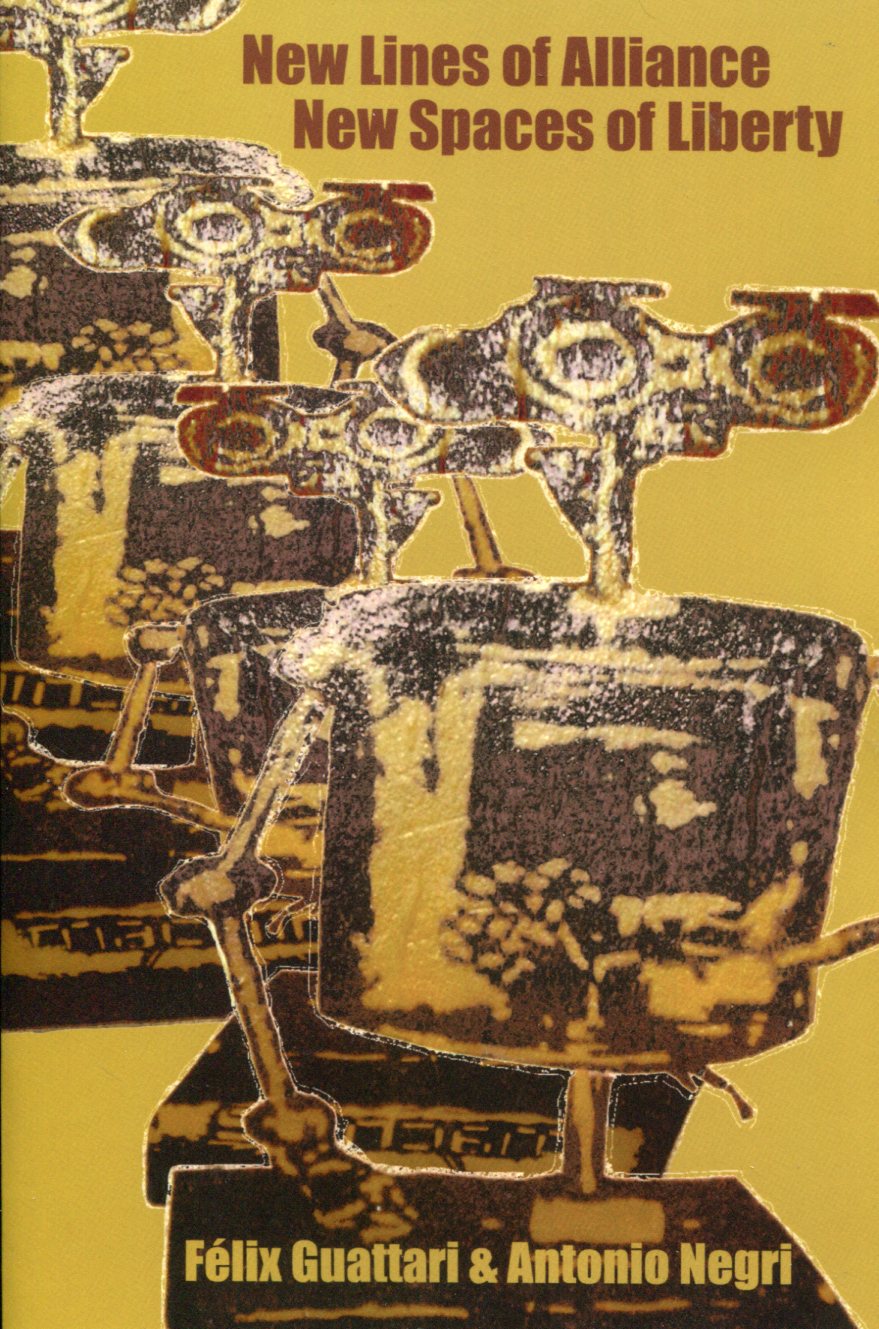
“The project: to rescue ‘communism’ from its own disrepute. Once invoked as the liberation of work through mankind’s collective creation, communism has instead stifled humanity. We who see in communism the liberation of both collective and individual possibilities must reverse that regimentation of thought and desire which terminates the individual….” Thus begins the extraordinary collaboration between Félix Guattari and Antonio Negri, written at dawn of the 1980s, in the wake of the crushing of the autonomous movements of the previous decade. Setting out Guattari and Negri diagnose with incisive prescience transformations of the global economy and theorize new forms of alliance and organization: mutant machines of subjectivation and social movement.Prefiguring his collaboration with Michael Hardt, Negri and Guattari enact a singular hybridization of political and philosophical traditions, brining together psychiatry, political analysis, semiotics, aesthetics, and philosophy. Against the workings of an increasingly integrated world capitalism, they raise the banners of singularity, autonomy, and freedom to search out new routes for subversion.This newly expanded edition includes previously untranslated materials and a new introduction by Matteo Mandarini.“After the highpoint of the subversive decade 1968-1977, Italian autonomist Marxism and French theory of desire meet at the intersection of two different methodologies of subjectivation. Social recomposition of the working class and molecular proliferation of desire merge, and together open a new space for theory and for social action. While the ideologies of the twentieth century are falling, Toni Negri and Félix Guattari trace the lines of a new vision of autonomy.” – Franco ‘Bifo’ Berardi
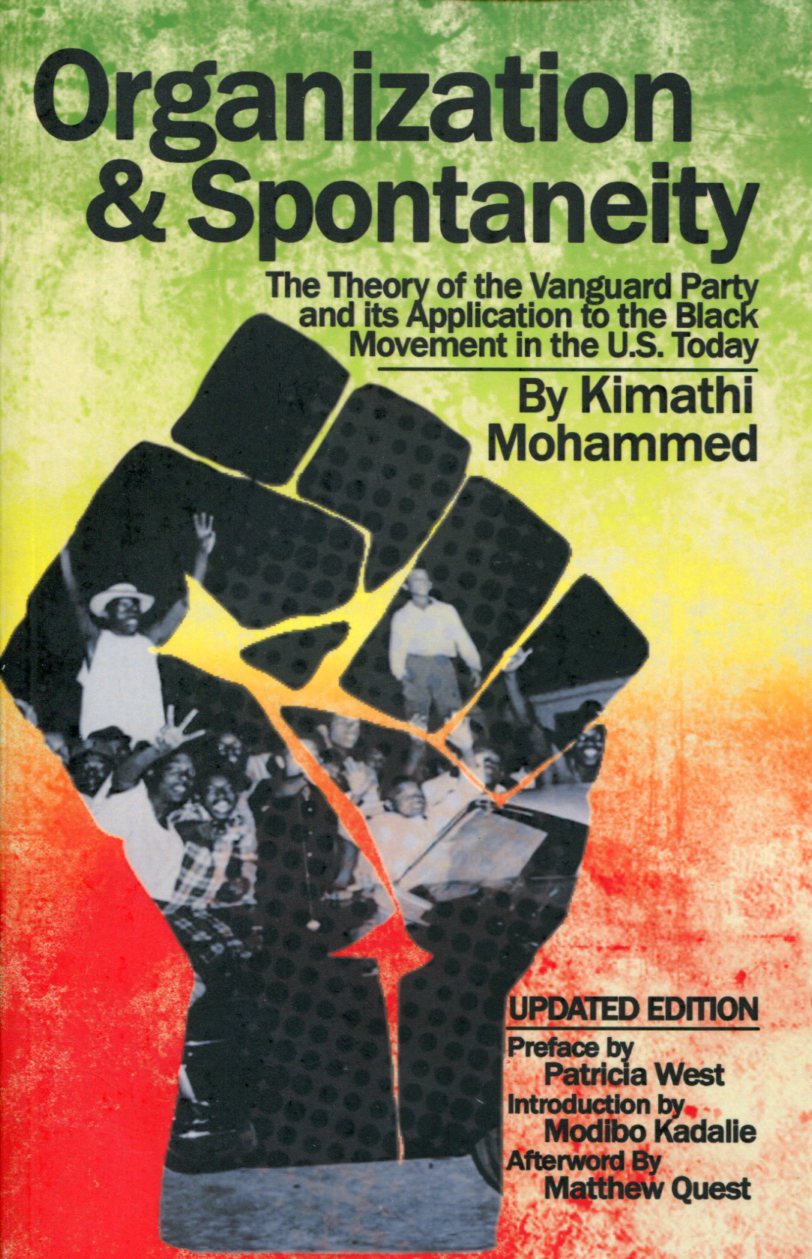
Kimathi Mohammed, a Michigan-based activist who was a native of Savannah, Georgia deserves to be recognized as among the most original political theorists of the Black Power movement in the United States. Organization & Spontaneity, originally published in 1974, was a response to key contradictions of the late 1960s and early-1970s Black freedom movement, manifested in the Black Panther Party and the League of Revolutionary Black Workers. In contrast to many political thinkers of the Civil Rights and Black Power era, Mohammed's work emphasized the self-organization of ordinary African Americans and their liberating, self-directed activism.Mohammed placed forward his critique of would-be Black vanguards at a time when most prominent Black Power activists—even the socialist advocates among them—were beginning to embrace electoral politics and systems of patronage which would ultimately suppress any independent Black political power.Organization & Spontaneity anticipated new obstacles in the Post-Civil Rights era, and continues to point the way out for our own place and time. This updated volume includes an additional essay by the author documenting CLR James's influence on the League of Revolutionary Black Workers, as well as a new introduction by Modibo Kadalie and an afterword by Matthew Quest.

On July 19th 1936, the Spanish generals rose against the people. The workers of Barcelona, under the leadership of the anarchists. succeeded in smashing the fascist rising within two and a half days. The anarchists did not want to conquer power for themselves, nor did the unions seek to establish a dictatorship. As in all other parts of Spain, an anti-fascist united front was formed. It ranged all the way from the various republican tendencies of the bourgeoisie to the most extreme tendencies of the proletariat - the anarchists. Naturally there was not complete harmony among the various tendencies composing the anti-fascist block, either with respect to aims or choice of means. Some wanted merely to smash the power of the generals and the clergy, but, otherwise maintain a bourgeois capitalist society; others sought a fundamental change in all phases of social life. High finance was on the side of the fascist generals. With the defeat of the generals, they lost their positions of power. The workers’ organisations assumed the functions of organising public life. The economic transformations took the form of socialisation. All big enterprises were either collectivised or socialised. The former owners of these big enterprises can offer no more resistance. However, the petty bourgeoisie, even though it did not have the strength to resist the new developments during the first months of proletarian victory, did not accept completely the new order.In the course of this development divergent trends began to appear. The masses of the workers were for the most part organised in the anarcho-syndicalist organisation. the CNT; the petty bourgeoisie, during the months that followed the 19th of July, affiliated itself with the UGT. Not only workers, but traders, owners of small shops, market salesmen, etc., joined the UGT. The developments in Spain took a course totally different from that of other countries. Forms of organisation arose, especially in Catalonia, which had been seen nowhere else. In all other European countries, especially in the democratic ones, the political parties form the currents of public life, but in Catalonia the trade unions have this function. This is due to the syndicalist character of the Spanish labour movement. In the spirit of these traditions, the petty bourgeoisie also organised themselves into trade unions.There is a fundamental difference in the workers’ organisation, the CNT, and that of the petty bourgeoisie, the UGT - in whose ranks workers have also been organised - both as to politics and as to their final goal. The UGT accepted collectivisation only under compulsion; they wanted nationalisation, that is, the power of control to lie in the hands of the state and the political parties represented in it rather than in the hands of the workers’ organisations. Friction arose, leading to collisions. Among the workers themselves, in the factories and in the management of enterprises, complete understanding and harmony reigned. Only in political questions did opinions differ.When the CNT entered the Catalan government on September 28th 1936, after the dissolution of the Anti-fascist Militia Committee which had been functioning for two and a half months, it took over, officially, the Department of Food Supplies. A central department for food supplies was created under the direction of the syndicalist Juan Domenech. He established an internal trade monopoly for the control of prices. The provisioning of food for the cities was to be taken over entirely by the unions of the transport workers and the various branches of the food industry, who were to substitute - in accordance with a special plan - for the big enterprise and the small traders who had controlled the food industry until then. The small traders became - as members of their unions - equal to the workers of town and country. Or, rather, they were supposed to become such. Continuous conflicts arose between the members of the CNT and those of the UGT, over ways and means of conducting the work. The conflicts created a scarcity of certain food articles. Things became more expensive; sharp political discussions arose as to their cause, and as to the value of the methods.Three months later, December 16th 1936, a new Catalan government had to be organised. This crisis was of a purely political character. The POUM, Workers Party of Marxist Union, was being viciously attacked by the leaders of the UGT, official communists for the most part. They declared the POUM, because of its Trotskyist tendency, a counter-revolutionary party. Soviet Russia herself, through her official representatives, took part in this campaign. The crisis was created in the Generality in order to remove the POUM, whose leader, Andres Nin, was Minister of Justice, from the government. The CNT was opposed to this political manoeuvre but, being in a minority in the coalition government, the POUM was expelled from the government.The dictatorial aims of the communists manifested themselves clearly in the new order. The communists had always been an unimportant minority in Catalonia, as well as in the rest of Spain. By a series of clever manoeuvres their influence increased in Catalonia. They united with the Socialist Party of Catalonia (PSUC), which joined the 3rd International. Although they called themselves socialists, they had the support of the communist organisations, and succeeded in winning the new party over to their line. To the communists of the PSUC the POUM signified a rival party that had to be eliminated from the scene. The Soviet Union strongly supported these manoeuvres. Some shipments of food arrived from the USSR. They also sent some armaments. The propaganda machine started using this support for their political purposes. The POUM began to lose their influence.The influence of the PSUC grew in proportion as that of the POUM declined. The differences between the two parties were extended into the UGT. The members of the POUM belonged to the UGT and even held a number of important positions there. The PSUC wanted to expel them from their posts. A bitter conflict began between the two Marxist brothers for control of the trade unions, a conflict such as is known only too well in many other countries. The political atmosphere among the anti-fascists in Catalonia became ever more unbearable.The CNT acted loyally toward the anti-fascist cause when the new government was formed. It wanted to stop fighting among the political parties. It made the proposal and succeeded in having it accepted, that trade unions, and not the political parties, should be represented in the new government. These trade unions were the CNT and the UGT. The Catalan Left, as a special expression of the Catalan Nation, and as partisans of the presidency, was also allowed to participate.To get the Ministry of Defence, until then in the hands of the Catalan Left, the CNT gave up the Department of Food Supplies to the UGT. Immediately after taking over the Department, Juan Comorera, the new Minister, erased, with one stroke of his pen, the entire work of his predecessor: the inner trade monopoly, the fixed prices for articles of food, was wiped out. Comorera’s aim was to break the power of the unions. He therefore wanted to turn over the function of supplying food to private companies. Thus small proprietors, petty traders and tenants were able to make greater profits through higher prices. The scarcity of bread became chronic. Things became more expensive and the masses more discontented. Economically, as well as politically, the fuel had been assembled, and demagogy helped set it alight.On October 22nd 1936, a pact was ratified, by the CNT-FAI on one side and the UGT-PSUC on the other. They agreed to a programme of minimum demands. Both organisations, especially the CNT, made concessions in the struggle against the rebel generals. The workers rejoiced over this pact, and a great mass meeting in the vast bullring of Barcelona, where all of the city workers were assembled, sealed it by acclamation.But there were those who still put their partisan interests above the interests of the proletariat as a whole. A campaign was begun against the CNT and the FAI of the same character as that employed against the POUM. The anarchists and syndicalists were held responsible for everything that did not function too smoothly. Even though the CNT-FAI gave up the idea of collectivisation in those sections where the small tenants were in a majority, and absolutely rejected the proposal for compulsory collectivisation, they continued to campaign against the CNT-FAI among the small tenants and peasants. They appealed to the property instinct, made the idea of collectivisation appear hostile to the lovers of property, and went so far as to denounce the advocates of collectivisation as enemies of the people.Such a malicious campaign had its effect. In January 1937, an insurrection arranged by the politicians broke out against the CNT-FAI in the town of Fatarella. The insurrection, as such, was unimportant; but it was symptomatic. Six months had passed since the victory over the fascists, six months of revolutionary development which led, and had to lead, towards socialisation. But certain parties wanted to reverse the trend of this development. They wanted a national war, not a social revolution. The slogan ’the war and the revolution’ for which the CNT-FAI stands, was opposed by the slogan of all the other political parties: ’First, we must win the war. Everything else, a new political order, establishment of social justice, etc., must be left untouched till the end of the war’.The conflicts became more intense. They wanted to manoeuvre the CNT-FAI out of their political positions. Blood flowed in Fatarella. Although both organisations issued a joint declaration regarding the events and their origin, the PSUC press continued its campaign of slander against responsible members of the CNT-FAI, ministers in the Generality, in connection with the outbreak. Certain elements of the Catalan Left and the Catalan Nationalists (Estat Catala) also joined in this insidious campaign.Grave discontent reigned among the workers. The revolutionary workers of Catalonia felt humiliated by the gradual curtailment of their revolutionary conquests after the 19th of July. The representatives of the CNT-FAI vigorously opposed the application of police measures to meet the discontent of the masses. The bourgeois elements, therefore, tried to remove the advocates of the syndicalists and the anarchists from their positions. The workers’ Patrols of Control, composed of those fighting elements who had smashed fascism in Catalonia on July 19th, had been functioning as anti-fascist guards, and were legalised as such. The majority of the members of these Patrols are members of the CNT, and when the UGT demanded equal representation with the CNT, to which they were obviously not entitled since they were not equal in membership in the region, bitter conflict sprang up again. The UGT members left the Patrols and devoted their attention to winning over the police to their side. Instead of building bridges of unity, they were widening the gulf that kept the proletariat separated.The communists and the elements of the Catalan Left, the Esquerra, started an intense propaganda among the existing police bodies: Assault Guards, Civil Guards and Catalan City Guards, a propaganda directed against all syndicalists and the anarchists. The latter had been demanding from the very beginning that the old police units be dissolved and replaced by a single body for public security. The other parties and organisations opposed it. Friction arose between the police and the workers’ Patrols. In some places fighting broke out resulting in a number of dead and wounded. The following is an example of the preparations being made by certain elements for a fratricidal war against the anarchists:On Friday March 5th 1937, a few individuals presented an order, signed by Vallejo, director of the arms factories, to the arsenal in Barcelona, to hand over to them ten armoured cars. The director of the arsenal found the document in order and delivered the cars. At the last moment doubts arose as to the authenticity of the order, and the director telephoned to Vallejo for verification. The document proved to be forged, but, in the meantime the armoured cars had been driven away. They were followed and observed to go into the Voroschilov Barracks, belonging to the PSUC, that is, the communists.Premier Tarradellas intervened. At first the barracks’ officer denied all knowledge of the deed. Only when threatened with a forced investigation of the barracks did they admit that the armoured cars were there.The purpose of thus stealing and hiding the armoured cars became more than clear to the people of Barcelona during the tragic May days.Premier Tarradellas issued a decree prohibiting the members of the various police bodies from joining any political parties or unions, which aroused great indignation among the workers. Special plenums of the CNT were held and the representatives of the CNT in the government were instructed to demand the annulment of the decree. At the same time the workers’ organisations of the CNT demanded the reform of the Department of Food Supplies and, therefore, the resignation of Comorera. A new crisis of the Generality was precipitated on March 27thThe solution to this crisis proved to be very difficult. The demands of the PSUC, hiding behind the UGT, became ever more arrogant. When, after a week of negotiations, a new programme for the government of the Generality had been agreed upon, the UGT broke it at the very last moment. Unity, so painfully achieved, was again spoiled. Companys, president of the Catalan Generality, created a provisional government with a peaceful coup d’etat. The syndicalists and anarchists would have been perfectly justified if they had rejected this arbitrary solution. They had proved their good will and patience; they could face public opinion; justice and sympathy were definitely with them. Yet, not to break the anti-fascist front, they swallowed this bitter pill too. On April 16th the crisis was finally solved, the CNT proving very compliant. They renounced their former demands, modified the desires of the proletariat by pointing out the necessities of the war against fascism, and urged them to concentrate their forces for the period after the defeat of the fascists.Comorera no longer headed the Department of Food Supplies, but the office itself remained in the hands of the UGT. The ministers of the CNT had also been changed. The syndicalists and the anarchists had done all they could to maintain the anti-fascist united front. They hoped that a new phase of development would begin now, a period of calm and relaxation behind the lines. False hopes.On April 25th, Roldan Cortada, prominent member of the PSUC was killed near Molins de Llobregat. With this lamentable act as a pretext, the PSUC tried, through their authority over the Public Forces, to take measures of repression against the sympathisers and members of the CNT and the FAI. And although they did not accuse us directly of having committed the attentat, they nevertheless tried, through their actions, to place the moral responsibility for the criminal attentat upon our organisations. Indignation spread over the entire province of Barcelona, both for the deed, and for the harsh measures of the police. The Director of Public Security, Rodriguez Salas, was responsible for these measures. His political career had been a varied one until then. He finally landed with the UGT. His actions against the CNT were considered as provocation’s. He had been conducting a struggle against the CNT for several months.A few days later the anarchist mayor of Puigcerda, Antonio Martin, and three of his comrades were shot. The members of the FAl became very indignant over the murder of their comrade, whom they all loved and respected as one of the best. Political tempers rose. The First of May was approaching. The negotiations between the CNT and the UGT for joint demonstrations failed, owing to the manoeuvres of the communists who controlled the UGT. Bitterness turned gradually into hate. Political passions dominated the scene.

The wave of political demonstrations since the Battle of Seattle in 2001 have crystallised a new trend in left-wing politics. Modern protest movements are grounding their actions in both Marxism and Anarchism, fighting for radical social change in terms that have nothing to do with the taking of state power. This is in clear opposition to the traditional Marxist theory of revolution which centres on the overthrow of government. In this book, John Holloway asks how we can reformulate our understanding of revolution as the struggle against power, not for power. After a century of failed attempts by revolutionary and reformist movements to bring about radical social change, the concept of revolution itself is in crisis. John Holloway opens up the theoretical debate, reposing some of the basic concepts of Marxism in a critical development of the subversive Marxist tradition represented by Adorno, Bloch and Lukacs, amongst others, and grounded in a rethinking of Marx's concept of 'fetishisation'-- how doing is transformed into being. John Holloway is a Professor in the Instituto de Ciencias Sociales y Humanidades of the Benemérita Universidad Autónoma de Puebla in Mexico. His publications include Crack Capitalism (Pluto, 2010), Change the World Without Taking Power (Pluto, 2005), Zapatista! Rethinking Revolution in Mexico(co-editor, Pluto, 1998) and Global Capital, National State and The Politics of Money (co-editor, 1994).

The Situationist International (1957-1972) had a very productive afterlife. This annotated bibliography contains over 600 references that chart its rise to fame from obscurity to celebrity. More than just a bibliography, it is the most substantial references book yet produced on the group. It also provides a gateway to the related worlds of underground publishing, anarchism and the contemporary avant-garde. In addition to listing and describing every significant publication on the SI, it is also a rich resource of information on related groups such as Gruppe Spur, Cobra and Lettrisme.With its extensive index, the bibliography provides countless new ways of examining and comprehending one of this century's most misunderstood groups.
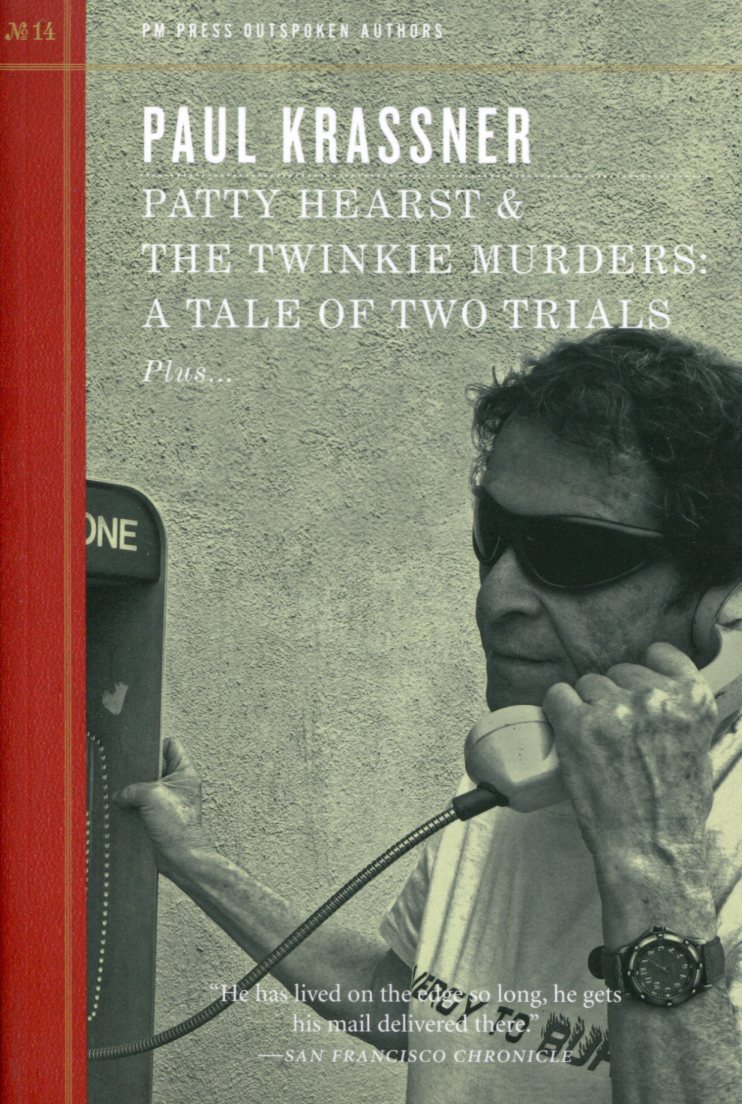
Patty Hearst & The Twinkie Murders is a darkly satiric take on two of the most famous cases of our era: the kidnapping of heiress Patty Hearst, and the shocking assassination of San Francisco Mayor George Moscone and gay leader Harvey Milk. As a reporter for the Berkeley Barb, Paul Krassner was ringside at the spectacular California trials. Krassner's deadpan, hilarious style captures the nightmare reality behind the absurdities of the courtroom circus. Using his infamous satiric pen and investigative chops, Krassner gets to the truth behind the events: the role of the police and FBI, the real deal with Patty and the SLA, and what really happened in Patty’s infamous closet. Plus: A merciless exposé of the "Taliban" wing of the gay movement and their scandalous attacks on alt-rock star Michelle Shocked. Also featured is our Outspoken Interview, an irreverent and fascinating romp through the secret history of America's radical underground. Names will be named. Praise: “Krassner is an expert at ferreting out hypocrisy and absurdism from the more solemn crannies of American culture.” —New York Times “Krassner has the uncanny ability to alter your perceptions permanently.”—Los Angeles Times “Krassner not only attacks establishment values; he attacks decency in general.” —Harry Reasoner, ABC News “The FBI was right—this man is dangerous—and funny, and necessary.”—George Carlin “As soon as we decided to create the Huffington Post, I knew I wanted Paul Krassner involved.”—Arianna Huffington About the Author: Creator of the Realist, the legendary underground magazine that many credit as the beginning of the radical "new journalism" of the 1960s, Paul Krassner is an immortal, immoral, revered, and reviled icon of American humor. Wielding satire as a weapon, he began the assault on middle America known today as the "counterculture" and is still a hero to radicals and a menace to the establishment. He now lives near Palm Springs disguised as an old man. Product Details: Author: Paul KrassnerPublisher: PM Press/Outspoken AuthorsISBN: 978-1-629630-38-0Published: 10/01/2014Format: PaperbackSize: 7.5x5.5Page count: 128 Subjects: Satire/History-US

Brest-Litovsk, 1917 and 1939 "If the Russian Revolution becomes the signal for a proletarian revolution in the West, so that both complement each other, the present Russian common ownership of land may serve as the starting point for a communist development." Marx/Engels - Preface to the Russian edition of the manifesto, 1882. This perspective was not realized. The European industrial proletariat missed its rendez-vous with a revitalized Russian peasant commune. Brest-Litovsk, Poland, December 1917: the Bolsheviks propose peace without annexations to a Germany intent on taking over a large swath of the old Tsarist empire, stretching from Finland to the Caucusus. But in February 1918, the German soldiers, "proletarians in uniform" though they were, obey their officers and resume the offensive against a Russia still ruled by soviets. No fraternization occurs, and the revolutionary war advocated by the Bolshevik left proves impossible. In March, Trotsky has to sign a peace treaty dictated by the Kaiser's generals. "We're trading space for time", as Lenin put it, and in fact, in November, the German defeat turns the treaty into a scrap of paper. Nevertheless, practical proof of the international link-up of the exploited had failed to materialize. A few months later, returning to civilian life with the war's end, these same proletarians confront the alliance of the official workers' movement and the Freikorps. Defeat follows defeat: in Berlin, Bavaria and then in Hungary in 1919; the Red Army of the Ruhr in 1920; the March Action in 1921... September 1939. Hitler and Stalin have just carved up Poland. At the border bridge of Brest-Litovsk, several hundred members of the KPD, refugees in the USSR subsequently arrested as "counter-revolutionaries" or "fascists", are taken from Stalinist prisons and handed over to the Gestapo. 1917-1937, twenty years that shook the world. The succession of horrors represented by fascism, then by World War II and the subsequent upheavals, are the effect of a gigantic social crisis opening with the mutinies of 1917 and closed by the Spanish Civil War*. *This is a shorter, entirely reconceived version of the preface to the collection Bilan/Contre-révolution en Espagne 1936-1939, Paris, 1979 (now out of print). A text in progress will deal further with the question of the development of fascism, and thus of anti-fascism, in our own epoch.

What is meant and what do we mean by "communisation" ? Actually, we have often dealt with this theme, for instance in our answers to the German group Revolution Times' questionnaire, published in English as What's It All About ? (2007), and in other texts, including A Contribution to the Critique of Political Autonomy (2008)

In the Golden Age of 'actually non-existing socialism' journeys were organised to the countries of the radiant future. Believers were then invited to express their enthusiasm for a reality staged by the lords of the manor. In this way people visited the soviet socialism of the USSR, the Maoist socialism of China, the miniature socialism of Albania, the bearded socialism of Cuba, the Sandinista socialism of Nicaragua, etc. Woe betide those who contested the objective, scientific and unquestionable character of these fabricated realities. Until the day these systems collapsed. People thought they had seen but had seen nothing! Were lessons drawn from this? It would seem not! With a smile slung over their shoulder, people today again go off "to do revolutionary Chiapas" in convoys organised by fellow travellers of the Zapatistas. On a well-signed route, people have to agree to see only what they have to see and to believe in the leader's words. The irrefutable argument hasn't changed one iota: because the imperialist forces are threatening and the people are defence-less, we can only put our trust in commanders. In a world in crisis the demands for the future are revised downwards! People make themselves the advocates of realism - they give in to the essential and side with new oppressive projects. The groups of revolutionary tourists, seduced by the exoticism of the unique Indian culture 2, are incapable of giving out any information or direct account of what is happening in the Mexican countryside: about the occupations, the forms of organisation chosen by the peasants in struggle, their objectives and political perspectives. They are also incapable of expressing the slightest critical element which could enable us to deepen our knowledge of the avant-garde organisation running the armed struggle. Was it simply the evocation of Zapata's name and the memory of a "Mexico Above the Volcano" which was enough to mobilise people? How come they can throw themselves naively in support of a movement which is a vehicle for the values of ethnic identity and patriotism, which are nowadays at the heart of the most barbaric tendencies in the world? Those who have more radical pretensions about the world can only justify their solidarity with this Zapatista army of national liberation in the name of the tactics of circumstance. It's in this way that, in the name of tactical support, people consider as acceptable for others what is unacceptable for themselves! Rather than let the charms of the balaclavaed Saviour lull us to sleep, wouldn't it have been better to analyse what is new in this type of old organisation?

‘Rocker’s vision remains as inspiring as when it was written ... and no less valid as a stimulus to our thinking and our constructive action.’ Noam Chomsky (from the Preface)Rudolf Rocker’s classic survey of anarcho-syndicalism was written during the Spanish Civil War to explain to the wider reading public the ideology which inspired the social revolution in Spain. It remains unsurpassed as a general introduction to anarchist thought and an authoritative account of the early history of international anarchism by one of the movement’s leading figures.The present edition is unique in giving a complete facsimile reproduction of the 1938 edition as well as the corrected transcript of the epilogue to the Indian edition of 1947. It has the addition of a new biographical introduction by Nicolas Walter, in which he quotes from previously unpublished manuscript sources. About The Author Rudolf Rocker (1873–1958) was a leading figure in the international anarchist movement. Politically active in Britain, Germany and the United States for more than half a century, Rocker helped found several influential anarchist groups. His prolific lectures and writings made him one of the best-known proponents of liberty and freedom. Anarcho-Syndicalism, the most accessible of his works, was first published in 1938 and is now regarded as a classic survey of anarchism at a critical point in world politics. Preface - Noam ChomskyIntroduction - Nicolas Walter1. Anarchism2. The Proletariat and the Beginning of the Modern Labour Movement3. The Forerunners of Syndicalism4. The Objectives of Anarcho-Syndicalsim5. The Methods of Anarcho-Syndicalism6. The Evolution of Anarcho-Syndicalism BibliographyEpilogue
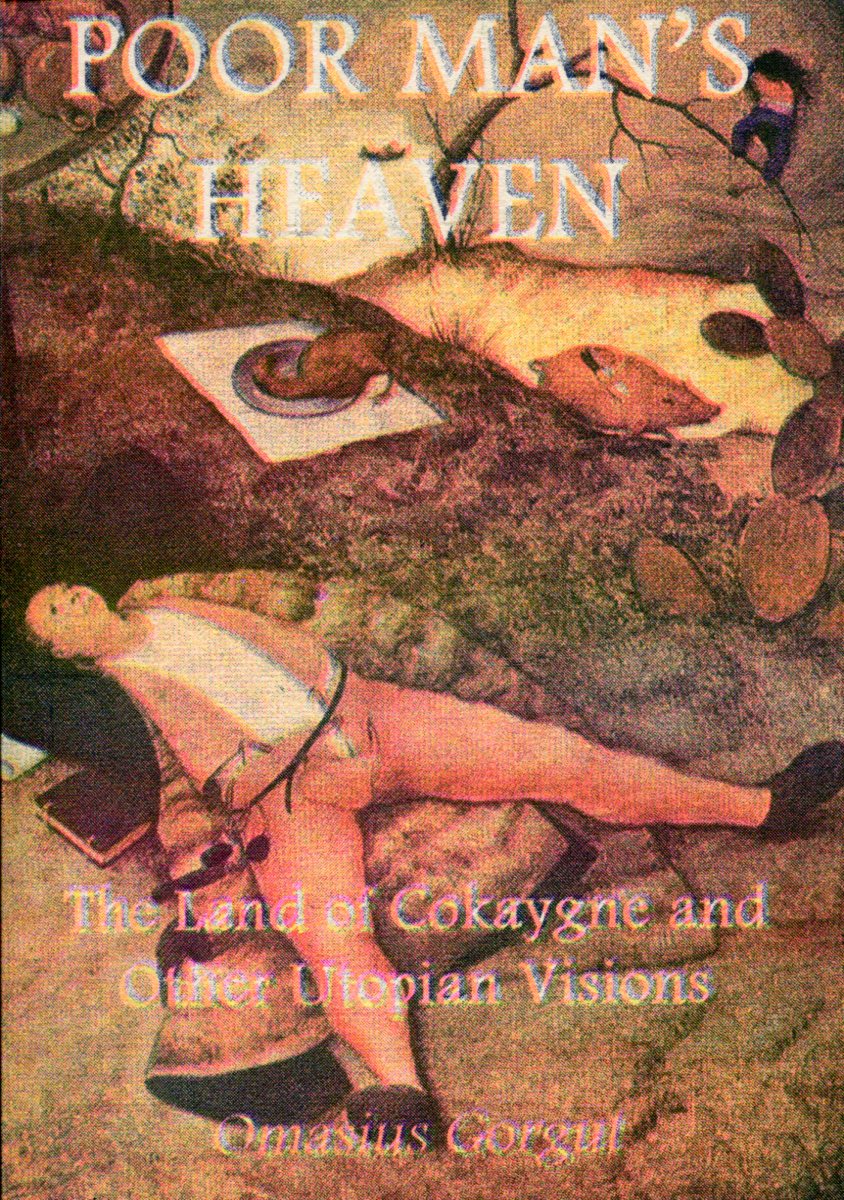
There's a land o'er the sea for you and for me, Where we don't have to struggle or fight... • POOR MAN'S HEAVENPamphletPublished October 2005A 14th Century peasant Utopian song, The Land of Cokaygne, and how it expressed the subversive desires of the time – in opposition to the poverty and misery of the lives of the poor; and how the theme recurs in song and story throughout the following centuries.Out of print - longer revised version published as a book in October 2011. We obtained a couple of last copies - it's now or never for this excellent pamphlet (well, unless they reprint it, which they hopefully will....)
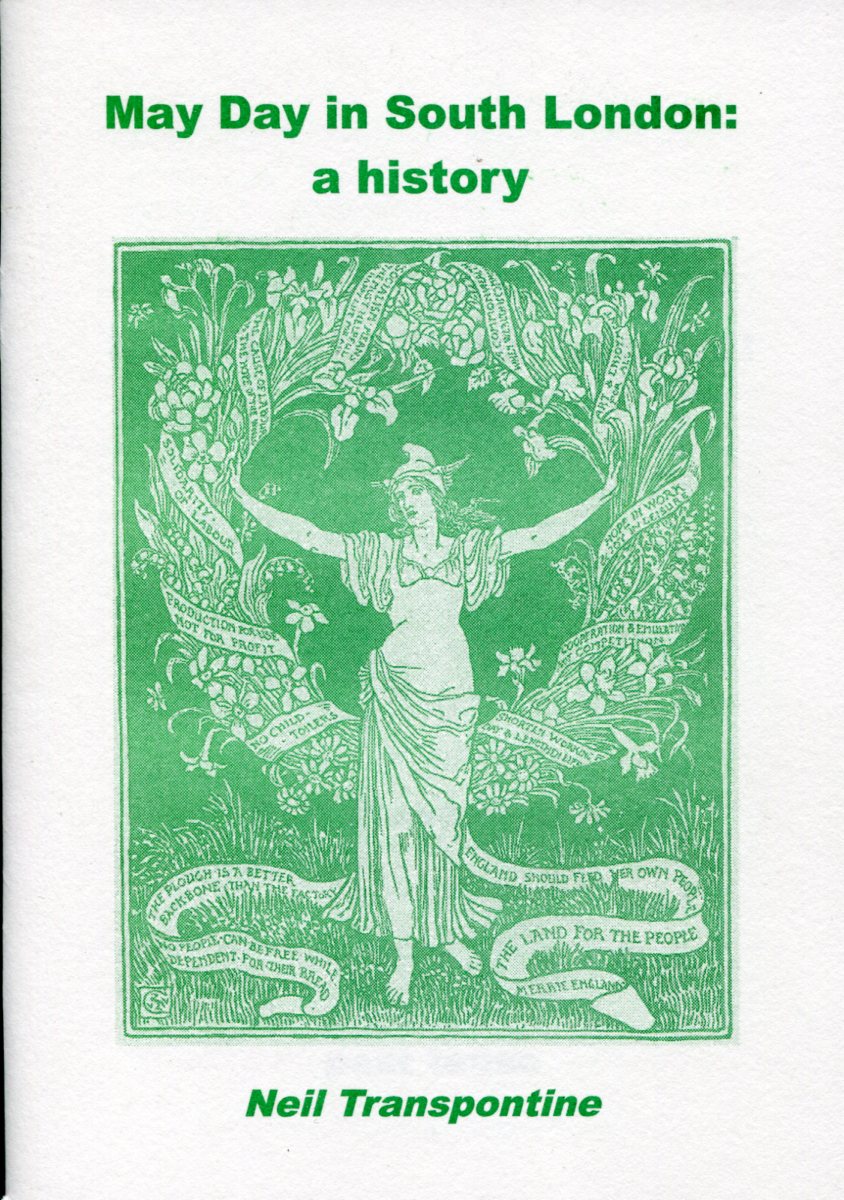
Neil Transpontine: May Day in South London - a History For centuries people have been celebrating May Day in South London. This pamphlet takes a detailed look at the different festivities, parades and demonstration in different parts of South London.

Eric Butterworth & David Weir (Eds.): The New Sociology of Modern Britain Very good condition.
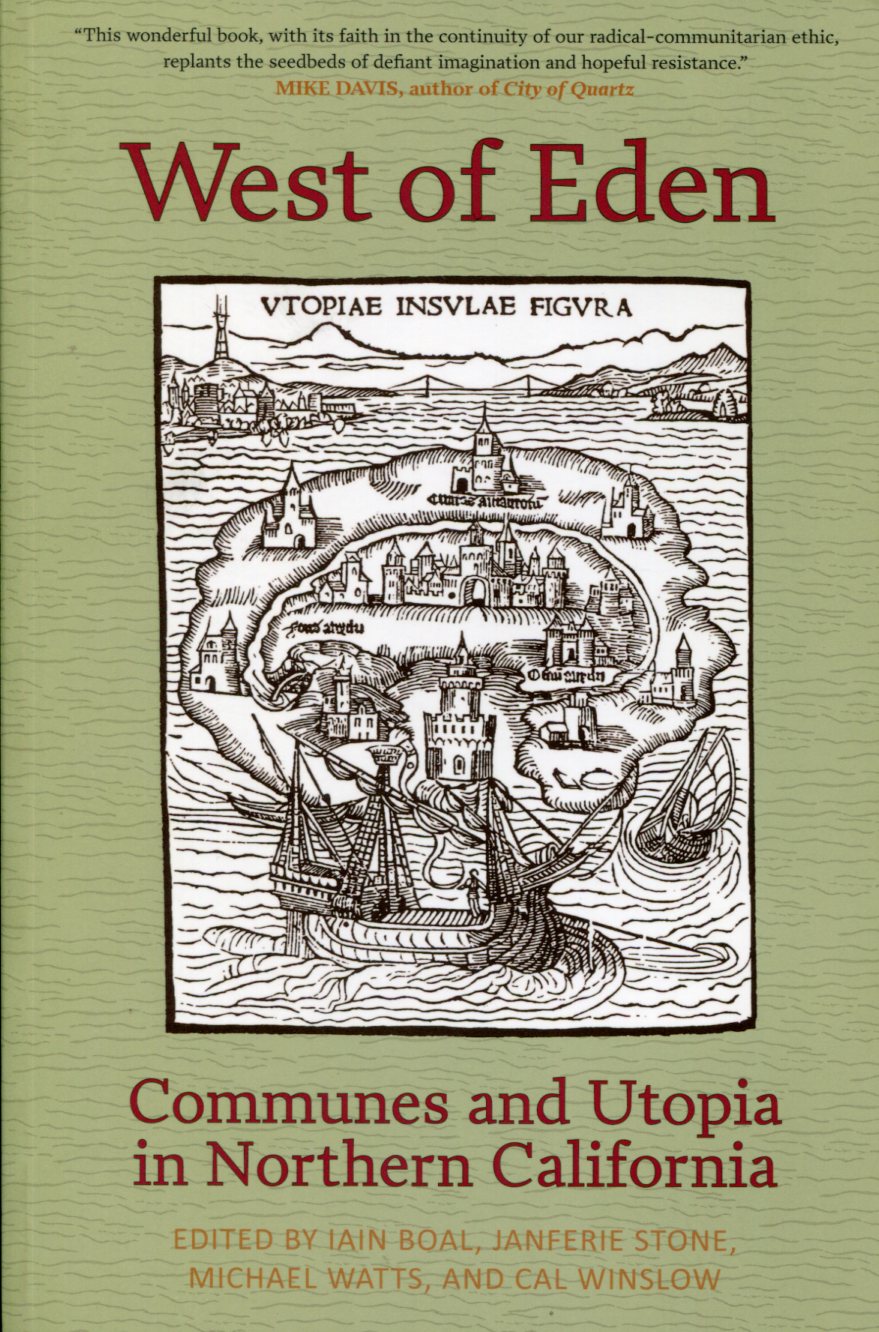
In the shadow of the Vietnam War, a significant part of an entire generation refused their assigned roles in the American century. Some took their revolutionary politics to the streets, others decided simply to turn away, seeking to build another world together, outside the state and the market. West of Eden charts the remarkable flowering of communalism in the 60s and 70s, fueled by a radical rejection of the Cold War corporate deal, utopian visions of a peaceful green planet, the new technologies of sound and light, and the ancient arts of ecstatic release. The book focuses on the San Francisco Bay Area and its hinterlands, which have long been creative spaces for social experiment. Haight-Ashbury's gift economy—its free clinic, concerts, and street theatre—and Berkeley's liberated zones—Sproul Plaza, Telegraph Avenue, and People's Park—were embedded in a wider network of producer and consumer co-ops, food conspiracies, and collective schemes. Using memoir and flashbacks, oral history and archival sources, West of Eden explores the deep historical roots and the enduring, though often disavowed, legacies of the extraordinary pulse of radical energies that generated forms of collective life beyond the nuclear family and the world of private consumption, including the contradictions evident in such figures as the guru/predator or the hippie/entrepreneur. There are vivid portraits of life on the rural communes of Mendocino and Sonoma, and essays on the Black Panther communal households in Oakland, the latter-day Diggers of San Francisco, the Native American occupation of Alcatraz, the pioneers of live/work space for artists, and the Bucky dome as the iconic architectural form of the sixties. Due to the prevailing amnesia—partly imposed by official narratives, partly self-imposed in the aftermath of defeat—West of Eden is not only a necessary act of reclamation, helping to record the unwritten stories of the motley generation of communards and antinomians now passing, but is also intended as an offering to the coming generation who will find here, in the rubble of the twentieth century, a past they can use—indeed one they will need—in the passage from the privations of commodity capitalism to an ample life in common. Praise: "As a gray army of undertakers gather in Sacramento to bury California's great dreams of equality and justice, this wonderful book, with its faith in the continuity of our state's radical-communitarian ethic, replants the seedbeds of defiant imagination and hopeful resistance." —Mike Davis, author of City of Quartz and Magical Urbanism “Utopias—we can't live without them, nor within them, for long. In West of Eden we see California, an earthly utopia, and the Sixties, a utopian moment, in full flower. Brave souls creating a heavenly host of communal spaces on the edge of America, hoping to break free of a world of capital, sexism, oligarchy, race. An amazing place and time that, for all its failures, changed the world—and which finally gets its due in this marvelous collection.” —Richard Walker, UC Berkeley, author of The Country in The City “There are a lot of versions of the sixties, and this is one that isn't stale or familiar, a book by a lot of good writers and original thinkers about how some much older ideas about the commons and the community were tinkered with, enlarged upon, turned into experiments that sometimes succeeded, sometimes failed, but left legacies that mattered. It's also a book about California's tendency to go experimental, idealistic, and eclectic, a fit successor to the classic California's Utopian Colonies that looked at some of the great nineteenth-century experiments.” —Rebecca Solnit, author of Storming the Gates of Paradise “The counterculture—from the North Beach Parnassus to the underground press—and ‘the Movement’—from Marxists to anarchists—all of it depended on a magnificent base, and here it is described, magnificently: the Oakland breakfast program, the Alcatraz occupation, the Mime troupe, and pot farms, the communes, the collectives, the co-ops of California during the 1960s. On the lam? A bad trip? Burnt out? Cracking up? AWOL? Dropping out? Requiring metamorphosis? These could provide rural and urban alternatives to Cold War, patriarchy, speed-up, or death in the jungle. With roots in previous decades of struggle by trade unions, ethnic enclaves, religious breakaways, and nineteenth-century dreams, and with branches in the lore of our own contemporary foodways, child-rearing practices, decision-making and meeting protocols, sexual politics, and DIY culture, the California communards cleared the path. Both veterans and young folk, grey hairs and newbies will find beautiful memoire, authentic experience, and brilliant analysis in these pages West of Eden." —Peter Linebaugh, author of The Magna Carta ManifestoAbout the Editors: Iain Boal is an Irish social historian of science and technics, affiliated with the University of California, Berkeley and Birkbeck College, London. He is associated with the Retort group, and is one of the co-authors of Retort's Afflicted Power: Capital and Spectacle in a New Age of War(Verso). He co-edited with James Brook Resisting the Virtual Life: The Culture and Politics of Information (City Lights), and is author of The Green Machine (Notting Hill Editions), a brief planetary history of the bicycle. Janferie Stone was a sojourner in two communes on the Mendocino Coast in the early 1970s. She has taught Native American Studies and anthropology at many levels of the California education system. Her essays have been published in Sustainable Feminisms: Advances in Gender Research, and From Rigor to Vigor: Transformations in the Field. Michael Watts is professor of Geography and Chair of Development Studies at the University of California, Berkeley where he has taught for over thirty years. A Guggenheim Fellow in 2003, he served as the Director of the Institute of International Studies from 1994–2004. His research focuses on food and energy security, rural development, and land reform in Africa, South Asia, and Vietnam. Cal Winslow is a social historian, educated at Antioch College and Warwick University. He is co-author with Edward Thompson, Peter Linebaugh, and others of Albion’s Fatal Tree. He is author of Labor’s Civil War in California (PM Press) and co-editor of Rebel Rank and File. He is the Director of the Mendocino Institute and associated with the Retort group. He lives with his family near Caspar on the Mendocino coast. Product Details:Editor: Iain Boal, Janferie Stone, Michael Watts, and Cal WinslowPublisher: PM PressISBN: 978-1-60486-427-4Published: March 2012Format: PaperbackSize: 9 by 6Page count: 320 PagesSubjects: History-California, Politics
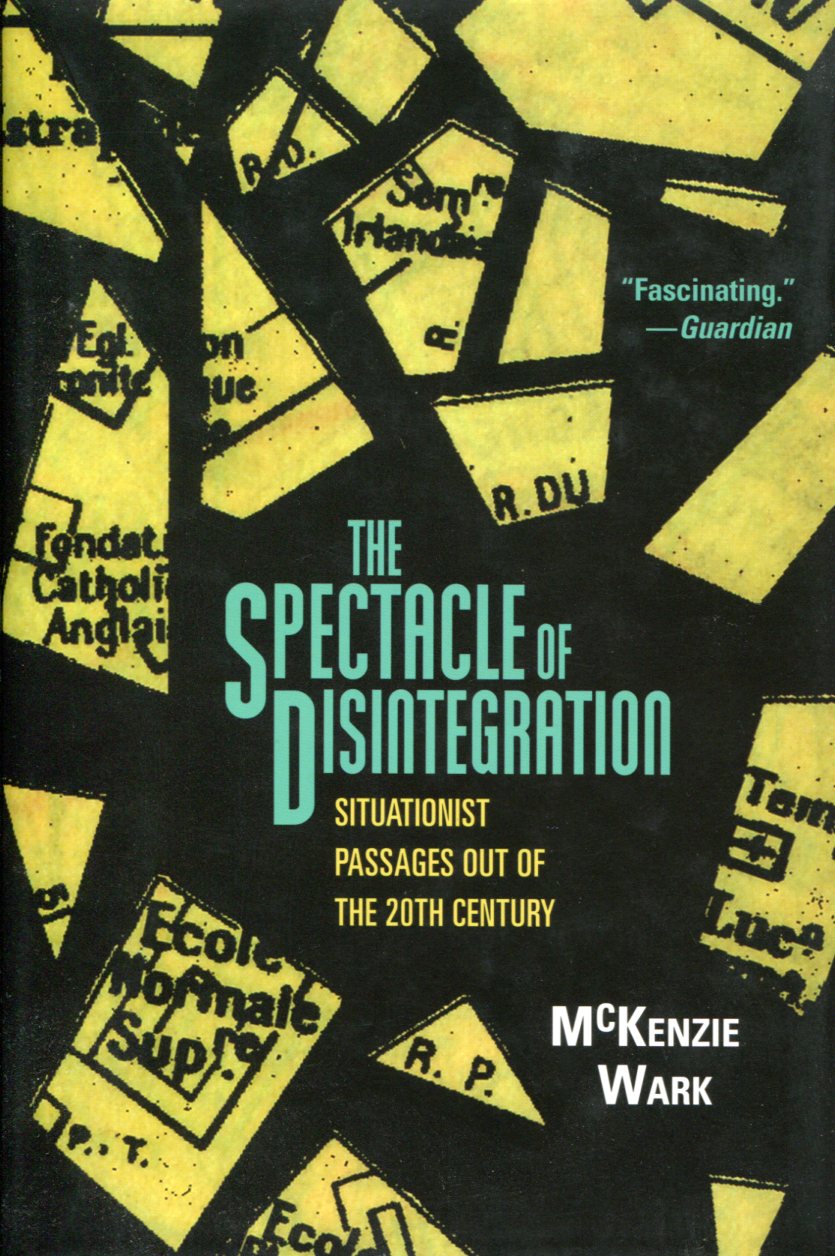
Following his acclaimed history of the Situationist International up until the late sixties, The Beach Beneath the Street, McKenzie Wark returns with a companion volume which puts the late work of the Situationists in a broader and deeper context, charting their contemporary relevance and their deep critique of modernity. Wark builds on their work to map the historical stages of the society of the spectacle, from the diffuse to the integrated to what he calls the disintegrating spectacle. The Spectacle of Disintegration takes the reader through the critique of political aesthetics of former Situationist T.J. Clark, the Fourierist utopia of Raoul Vaneigem, Rene Vienet's earthy situationist cinema, Gianfranco Sangunetti's pranking of the Italian ruling class, Alice-Becker Ho's account of the anonymous language of the Romany, Guy Debord's late films and his surprising work as a game designer. At once an extraordinary counter history of radical praxis and a call to arms in the age of financial crisis and the resurgence of the streets, The Spectacle of Disintegration recalls the hidden journeys taken in the attempt to leave the twentieth century, and plots an exit to the twenty first.
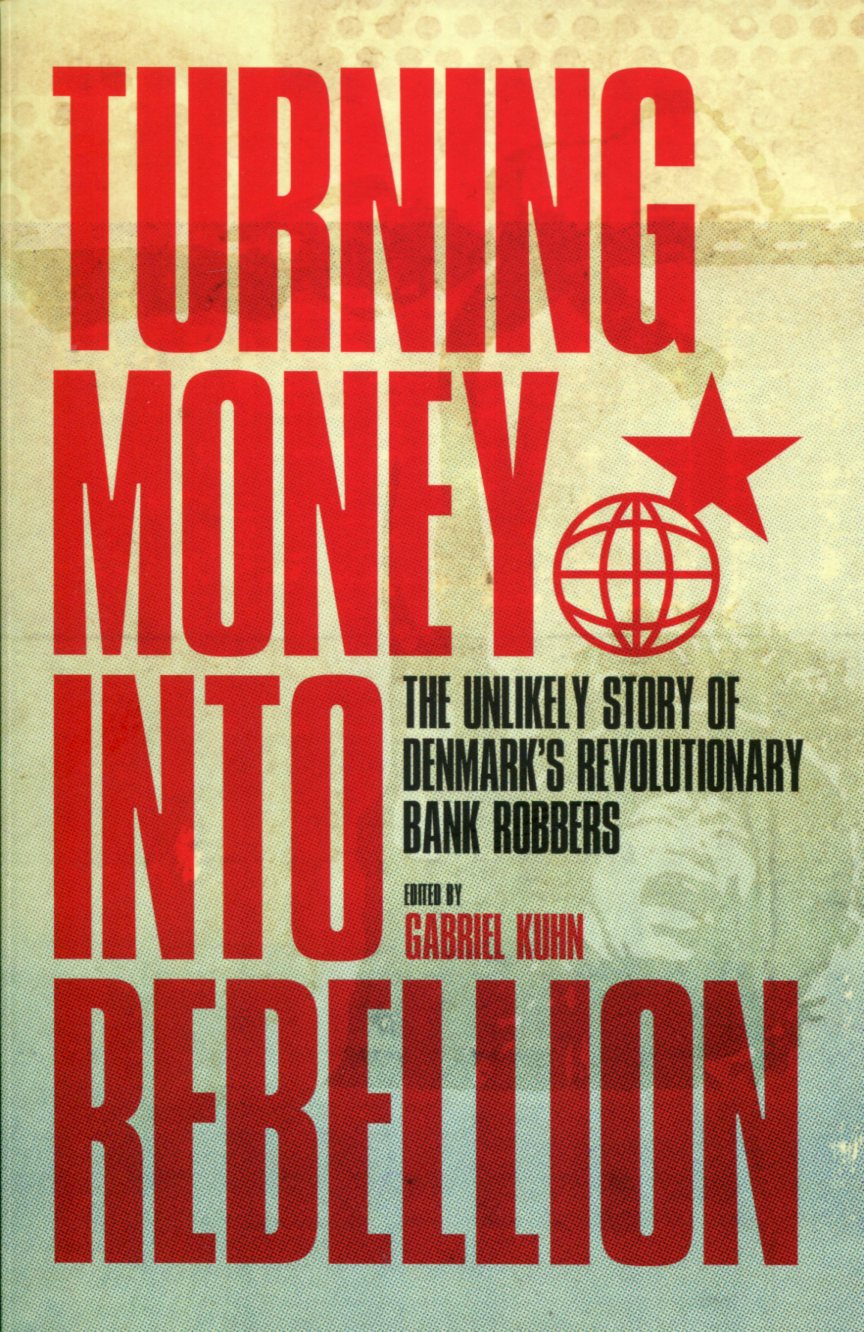
Blekingegade is a quiet Copenhagen street. It is also where, in May 1989, the police discovered an apartment that had served Denmark’s most notorious twentieth-century bank robbers as a hideaway for years. The Blekingegade Group members belonged to a communist organization and lived modest lives in the Danish capital. Over a period of almost two decades, they sent millions of dollars acquired in spectacular heists to Third World liberation movements, in particular the Popular Front for the Liberation of Palestine (PFLP). In May 1991, seven of them were convicted and went to prison. The story of the Blekingegade Group is one of the most puzzling and captivating chapters from the European anti-imperialist milieu of the 1970s and ’80s. Turning Money into Rebellion: The Unlikely Story of Denmark’s Revolutionary Bank Robbers is the first-ever account of the story in English, covering a fascinating journey from anti-war demonstrations in the late 1960s via travels to Middle Eastern capitals and African refugee camps to the group’s fateful last robbery that earned them a record haul and left a police officer dead. The book includes historical documents, illustrations, and an exclusive interview with Torkil Lauesen and Jan Weimann, two of the group’s longest-standing members. It is a compelling tale of turning radical theory into action and concerns analysis and strategy as much as morality and political practice. Perhaps most importantly, it revolves around the cardinal question of revolutionary politics: What to do, and how to do it? Praise: “This book is a fascinating and bracing account of how a group of communists in Denmark sought to aid the peoples of the Third World in their struggles against imperialism and the dire poverty that comes with it. The book contains many valuable lessons as to the practicalities of effective international solidarity, but just as importantly, it is a testament to the intellectual courage of the Blekingegade Group.“ —Zak Cope, author of Dimensions of Prejudice: Towards a Political Economy of Bigotry “The story of how some pro-Palestinian activists become Denmark’s most successful bank robbers is more exciting than any thriller.“ —Åsa Linderborg, Aftonbladet “I am convinced that they never even took a nickel for themselves.“ —Jørn Moos, chief investigator in the Blekingegade Case About Gabriel Kuhn: Gabriel Kuhn is a Swedish-based author and translator. Among his publications with PM Press are Sober Living for the Revolution: Hardcore Punk, Straight Edge, and Radical Politics (2010) and All Power to the Councils! A Documentary History of the German Revolution of 1918-1919 (2012). Product Details: Editor: Gabriel Kuhn Publisher: PM Press/KersplebedebISBN: 978-1-60486-316-1Published: 08/14Format: Paperback Size: 9 x 6Page Count: 240 Subjects: History-Europe/Politics-Activism
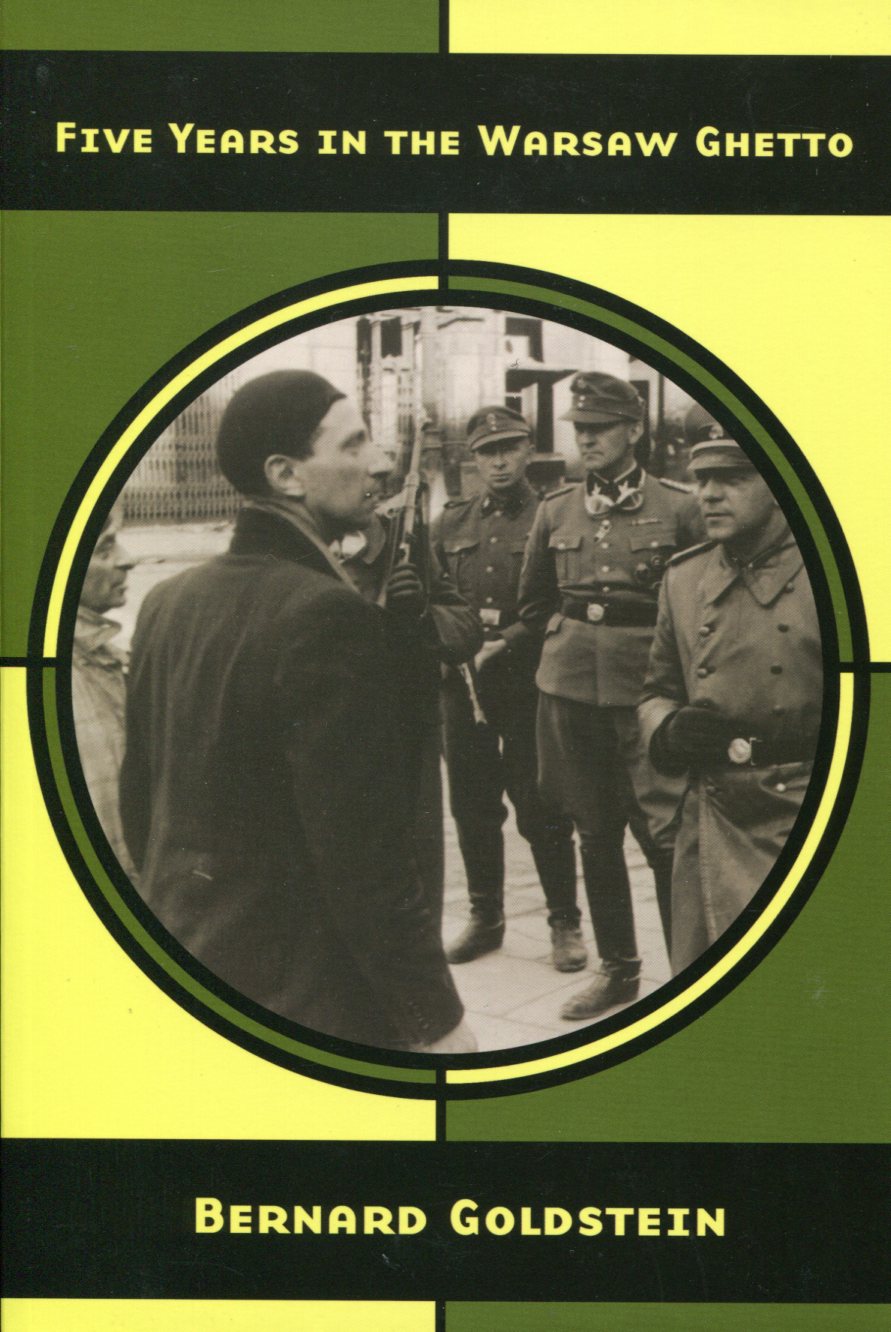
- Spine of the book is paled out from sunlight, otherwise new shop copy - This book, rescued from obscurity by the Nabat division of AK Press, is most worthy of attention and reading. It relates the true story of Goldstein, a dedicated Socialist revolutionist and founding member of the Jewish Bund and his perilous existance in pre-war and wartime Poland including life in the hellish Warsaw Ghetto and the struggle of the occupants to survive. Born in a small town outside of Warsaw in 1889, Bernard Goldstein joined the Jewish labor organization, the Bund, at the age of 16 and dedicated his life to organizing workers and resisting tyranny. Goldstein spent time in prisons from Warsaw to Siberia, took part in the Russian Revolution, and was a respected organizer within the vibrant labor movement in independent Poland. In 1939, with the Nazi invasion of Poland and establishment of the Jewish Ghetto, Goldstein and the Bund went underground—organizing housing, food, and clothing within the ghetto; communicating with the West for support; and developing a secret armed force. Smuggled out of the ghetto just before the Jewish militia's heroic last stand, Goldstein assisted in procuring guns to aid those within the ghetto's walls and aided in the fight to free Warsaw. After the liberation of Poland, Goldstein emigrated to America, where he penned this account of his five and a half years within the Warsaw ghetto and his brave comrades who resisted to the end. His surprisingly modest and frank depiction of a community under siege at a time when the world chose not to intervene is enlightening, devastating, and ultimately inspiring. "His active leadership before the war and his position in the Jewish underground during it qualify him as the chronicler of the last hours of Warsaw's Jews. Out of the tortured memories of those five and a half years, he has brought forth the picture with all its shadings—the good with the bad, the cowardly with the heroic, the disgraceful with the glorious. This is the valedictory, his final service to the Jews of Warsaw." —Leonard Shatzkin, translator and editor It took me a few days to write this review after I finished "Five Years In The Warsaw Ghetto" by Bernard Goldstein. In a day where there's much wrong with our world, you can't help but be depressed when reading of people in the past that's ideals were utterly crushed by the might of state power. Goldstein was a Jewish socialist organizer in the trade unions of Warsaw, and lost his entire community to the Nazi plan of aus rotten of the Polish Jews. Its story, a re-release of a memoir put out in the 1950s when the Holocaust was fresh in the world's mind, leaves you with three things. First, it is a tragedy, one of where Bernard Goldstein spent his entire life fighting for justice, as a socialist activist and organizer amongst Polish workers and Jews; he actively fought fascism from rising in Poland, but was nearly powerless to stop as the tanks rolled into Warsaw. Throughout the five years, he watched as half a million Jews were reduced to a little more than 70,000, and as his beloved Warsaw was utterly destroyed by the Nazis, and than the Socialist resister survivors were rounded up and either imprisoned or executed by the Soviets. Second, it is a story of hope. Throughout the entire occupation, Goldstein never rested nor never gave up; reminding the reader of the old phrase "Better to die on your feet than to live on your knees." When the Nazis set up the Ghetto, he urged, from the underground press, to resist it and not to trust the Jewish collaborators whom the Gestapo put into power to rule over the ghetto. When deportations started, his organization tried to manufacture fake documents to as many people as possible marked for liquidation as good workers. When it became clear the Nazis were planning to kill everyone, Goldstein helped organize the uprising which nearly succeeded in defeating the Nazis except for a dearth of supplies. Escaping the Ghetto, Goldstein joins the Polish resistance which stages a second city-wide uprising two years later, which only failed because the approaching Soviet army refused to help it, since Stalin wanted no rivals in his puppet government. Third, it is a story of courage to fight for what is right. Throughout the story, Goldstein remains resolute that the Nazis would be defeated eventually, and used all of his cunning, strength, and organizing skill to achieve it. People who compromised themselves in order to survive in this story usually did not, such as Jewish Gestapo agents, who became such to protect themselves from death camps, but instead were assassinated by vengeful Jews when the uprisings erupted. Goldstein, the biggest rebel of them all, survives the holocaust of his people and his city, though he has to flee when the Soviets begin arresting the radicals of the nation. Goldstein's message should be for us today, in these difficult times, to never give up, and never stand down, no matter how mighty your foes are nor how much the odds are stacked against you and what you hold dear. Nothing, not the state, nor the worst of tyrants and human hatred, can crush the thoughts and hope for a better world. If Goldstein can survive it, so can we.
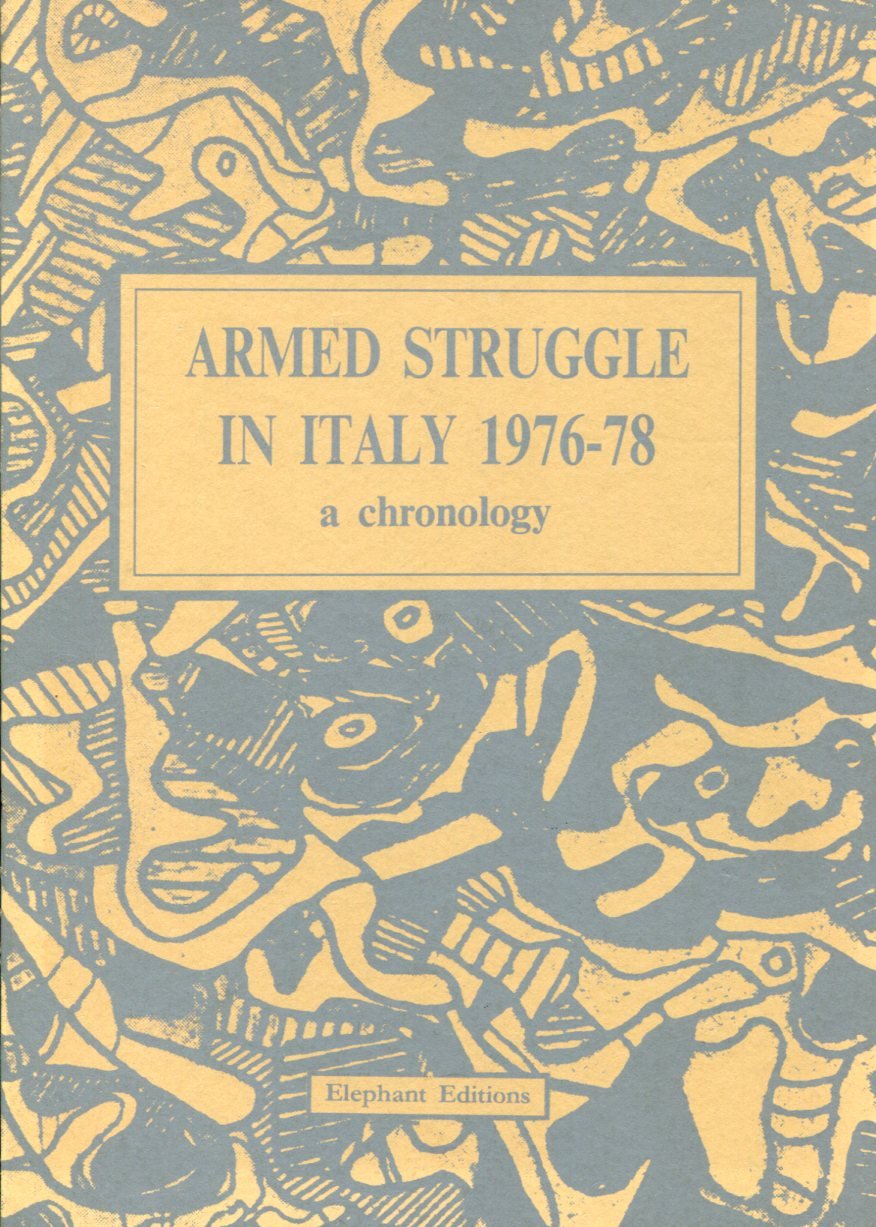
Armed Struggle in Italy 1976-78 A chronology During these years the antagonist movement in Italy shed all its taboos concerning destruction, violence and the use of arms against the class enemy. It became normal to respond to the humiliation and tyranny of capital with the arms considered most effective, and the violence of the bosses, police and fascists found and immediate response both in the streets and in specific retaliatory actions. When this counter-information was first published, the aim was to make known and extend the whole dimension of armed struggle, so it contains little criticism of the forms that struggle took. Now it is time to contribute to the qualitative aspect of the struggle that is spreading today, using methods that include sabotage against the structures of capital carried out by small groups of comrades who have come together on the basis of affinity. These contain a strong element of creativity and , in the knowledge that it is simple to attack what is oppressing us directly and that there is no need for endless documents of ideological justification for doing so. This is a spined pamphlet! one of the original Elephant Editions to be beautifully printed "properly"!
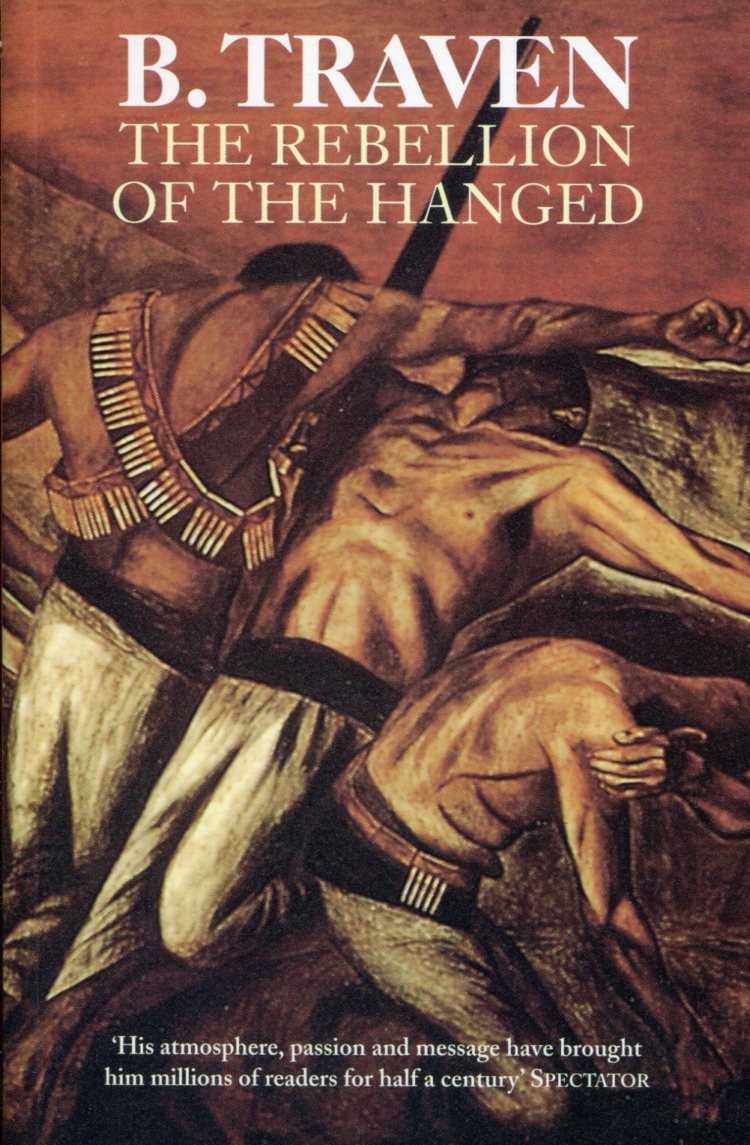
This is a gripping story of mistreatment of Indians in Mexico just prior to the Revolution of 1910. The principal character is Candido, a poor Indian whose debts lead him to become a contact laborer cutting wood in the jungles of Southern Mexico. Life in these labor camps is cruel and oppressive, and one has little chance of escaping. The Anglo-Mexicans that run the plantation (Don Felix, Don Severo, Don Acacio) demand an impossible level of work from their Indian laborers; those that fail are beaten or hanged by their wrists as punishment. Having endured their employers' unfathomable cruelty, an unintended rebellion springs up when the opportunity arises. The workers realize that in the corrupt Mexican society such a rebellion is unlikely to succeed, but they feel a level of freedom just in trying. This is the fifth and perhaps best of the jungle books by author B. Traven (1890-1969). Traven had great sympathy for the oppressed Indians, leftist views, and a very engaging style. Readers should also see Traven's other novels about Mexico and oppression, the most famous of which is TRESURE OF THE SIERRA MADRE.
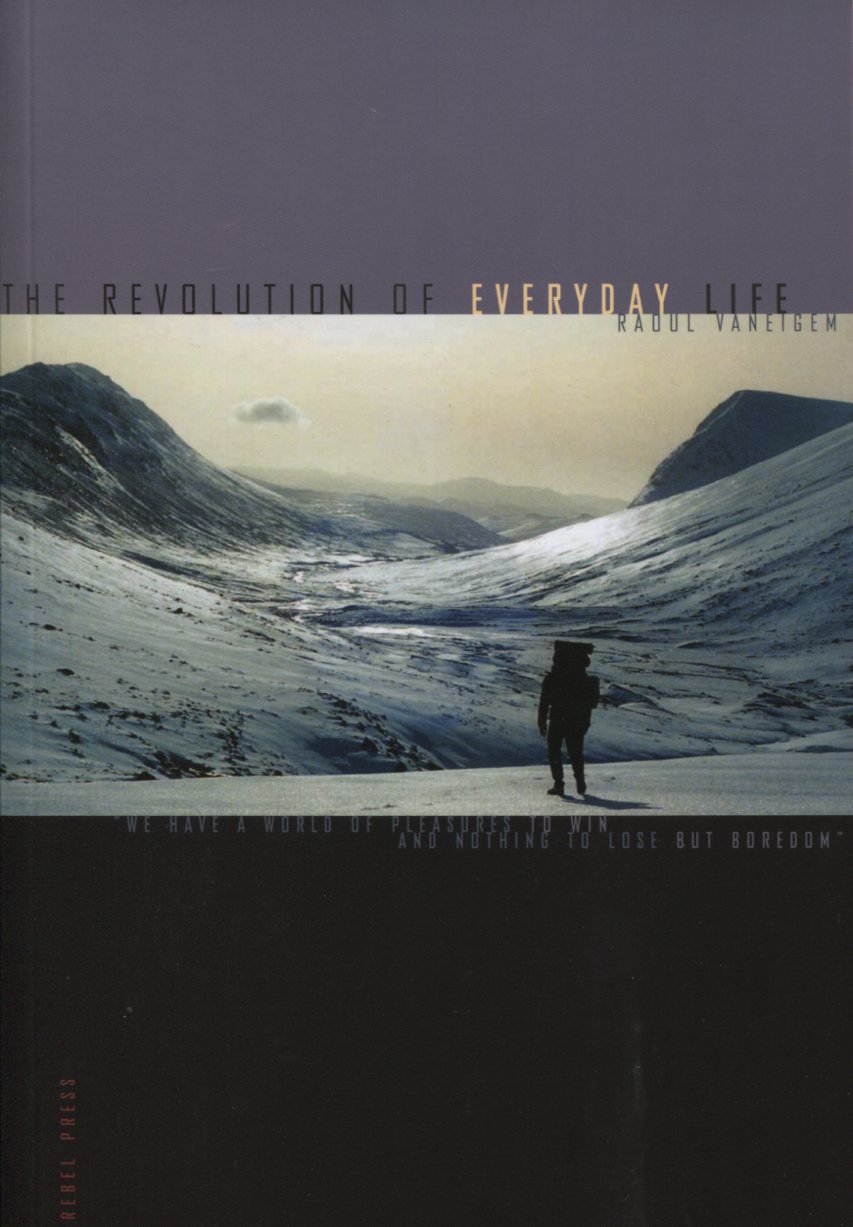
"The most striking aspect of Vaneigem's compendium of Free Spirit Lore is his ability to release the material into the present . . . you can almost feel the whole great edifice of social order—their Church, our capitalist democracy —gather itself up, take a deep breath, and run." —Greil Marcus, author, Lipstick Traces on The Movement of the Free Spirit Finally, back in print again, the essential handbook for all of us still alienated by modern capitalism. Together with Debord, Vaneigem was the main theorist of situationist ideas. He has the added benefit of being eminently more readable! An incredible work, more potent now than ever. "We have a world of pleasures to win, and nothing to lose but boredom.......You want to fuck around with us? Not for long."
